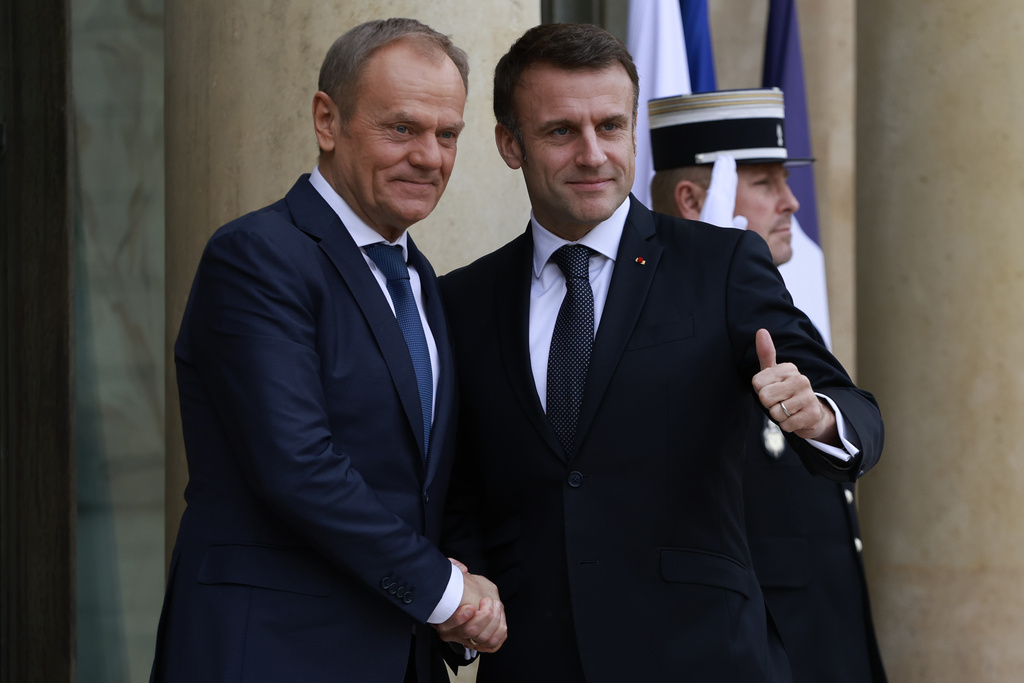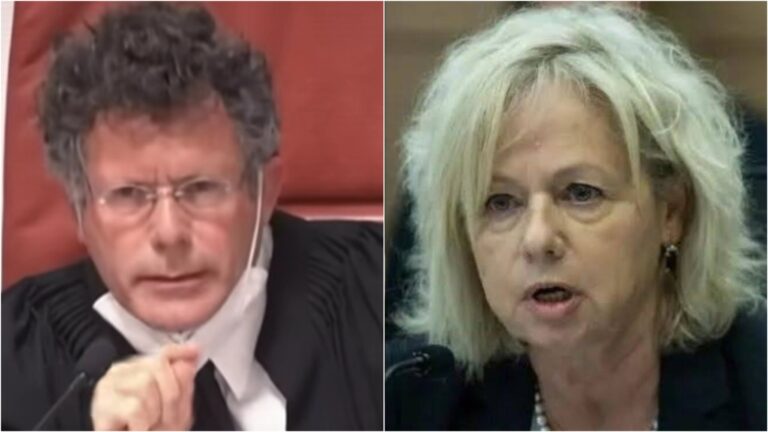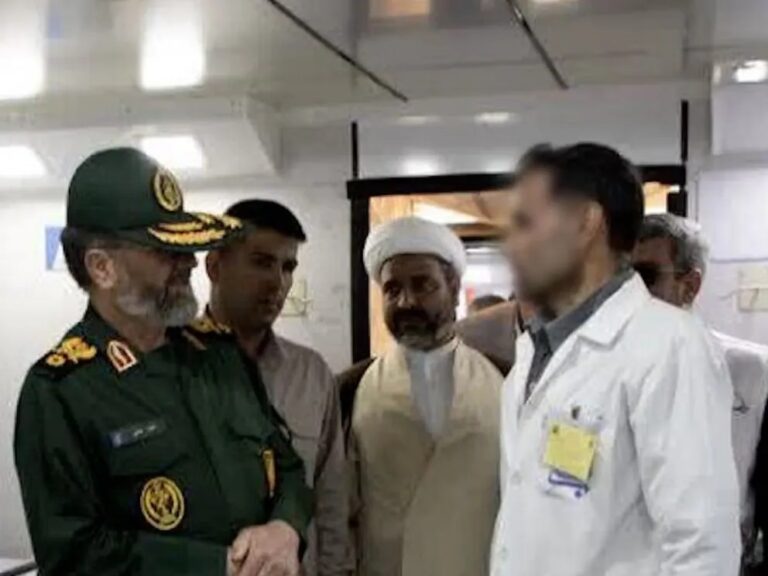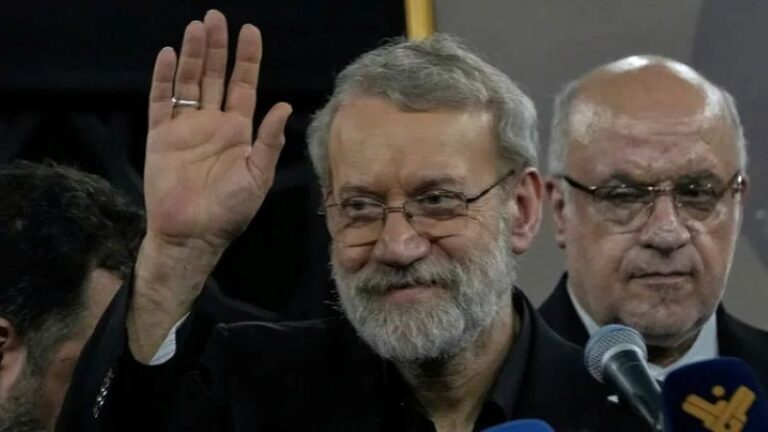Polish Prime Minister Donald Tusk vowed to “revitalize” his nation’s relations with its key European partners during a trip to Paris and Berlin on Monday as fears grow that former President Donald Trump could return to power in the United States and give Russia a free hand to expand its aggression following its invasion of Ukraine.
The meetings on Monday come after Trump shocked many in Europe over the weekend by inviting Russia to invade any NATO member not spending enough on its own defenses.
“These comments are irresponsible and even play into Russia’s hands,” German President Frank-Walter Steinmeier said Monday during a visit to Cyprus, remarks carried by the German dpa news agency. “And no one in our alliance can have an interest in that.”
The words were particularly shocking for front-line NATO countries like Poland, which has endured Russian control and occupation, and where anxieties run high over the war just across its eastern border in Ukraine.
Tusk, who joined French President Emmanuel Macron for a working lunch at the Elysee presidential palace, said his visit was aimed at “revitalizing Poland’s relations with the most important European partners.”
He stressed that “there is no alternative to the European Union, there is no alternative to transatlantic cooperation, there is no alternative to NATO.”
“Europe must become a safe continent, and this means that the EU, France and Poland must become countries that are strong and ready to defend their own borders, their own territory and to defend and support our allies and friends from outside the European Union,” Tusk said.
Macron praised France and Poland’s “key role” in security and defense in Europe in the context of the war in Ukraine.
Europe’s will “to further supply and meet Ukrainian needs is crucial,” he said after leaders of the 27 European Union countries sealed a deal earlier this month to provide Ukraine with 50 billion euros ($54 billion) in support for its war-ravaged economy.
This “will enable us to make from Europe a security and defense power” that is both complementary to NATO and a pillar of the Atlantic Alliance, Macron said.
Trump’s remarks, made as the Republican frontrunner was campaigning, created fears that if he is re-elected, he could embolden Russia to attack other countries following its invasion of Ukraine.
Speaking Saturday at a rally in Conway, South Carolina, Trump recalled how as president he told an unidentified NATO member that he would “encourage” Russia to do as it wishes in cases of NATO allies who are “delinquent.”
“‘You didn’t pay? You’re delinquent?’” Trump recounted saying. “‘No I would not protect you. In fact, I would encourage them to do whatever the hell they want. You gotta pay. You gotta pay your bills.’”
NATO secretary-general Jens Stoltenberg issued a statement Sunday saying that Trump’s remarks put American troops and their allies at greater risk.
NATO does not require its 31 members to pay bills, but they are expected to invest a certain percentage of their own budgets — 2% of their gross domestic product — on defense. Some countries, like Poland, where security fears run deep, have long met the target. Poland has even gone far beyond, ramping up spending as a result of Russian aggression in Ukraine.
Germany, with a post-World War II political culture of military caution, long fell short of the 2% target and was a frequent target of Trump’s ire during his presidency. But Berlin announced plans to step up military spending after Russia launched its full-scale invasion of Ukraine, and plans to hit 2% this year.
France’s military budget has grown in recent years and has reached the level of about 2% of its GDP.
Tusk returned to power as prime minister of his central European nation in December after eight years of rule by a national conservative government that often took a conflictual stance with European allies, particularly Germany. As a result, Warsaw’s influence in Europe diminished.
Tusk was to head to Berlin later Monday to meet with German Chancellor Olaf Scholz.
Meanwhile, the foreign ministers of France, Germany and Poland are to meet in the Paris suburb of La Celle-Saint-Cloud as they seek to revive the so-called Weimar Triangle, a political format that has been dormant for years.
The Weimar Triangle was created in 1991 as Poland was emerging from decades of communism as a platform for political cooperation among the three nations.
(AP)












One Response
They have good reason to worry that the US will turn “isolationist” (“America First”), just like a century ago. The major difference is that the Europeans’ economy is gigantic compared to Russia, so if they want to build up their militaries they can do so. France and Britain are already nuclear powers, and the rest (led by Germany, “how reassuring”) can easily develop nukes. Countries such as Israel, Taiwan, and Korea may be worse off since they are outnumbered by their enemies, and maybe thrown under the bus as the US loses interest in the rest of the world.